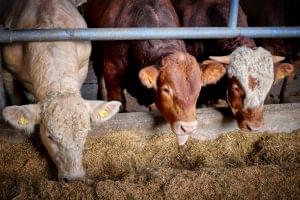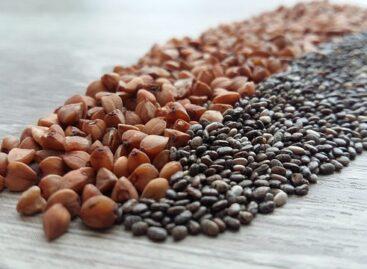Livestock breeders also receive significant help to overcome challenges from the ministry
In the past almost two and a half years, the livestock sector has faced serious challenges, in addition to the coronavirus, the rise in feed and energy prices, as well as the labor shortage, have put farmers in a difficult situation. The Ministry of Agriculture has taken a number of policy measures in order to overcome the challenges – Anikó Juhász, the Deputy State Secretary of the Ministry of Agriculture (AM) responsible for agriculture, pointed out according to the ministry’s announcement on Friday at the 31st Farmer Expo in Debrecen.

The drought also put animal breeders in a difficult situation, especially in the area of feed (Photo: Pixabay)
At a round table discussion held with the participation of well-known banking, feeding and animal breeding specialists, the consequences of the historic drought affecting livestock keepers, i.e. the burning of pastures and mowers, and the decreasing yield of bulk and grain feed were also discussed. The pastures burned due to the drought force the producers to feed the animals with purchased fodder and bulk feed transported from further away, which leads to a drastic increase in costs.
The subsidies act against the supply problems of livestock farmers
Anikó Juhász said that in view of the extraordinary drought situation, the ministry introduced a five-point package of measures to help farmers, including the livestock sector. The most important thing for the sector is that the government allocated a HUF 3 billion subsidy to finance the bulk feed transport costs of livestock farmers who are struggling with supply problems. Even in the challenging situation, the animal breeders made significant technological developments, which is well reflected by the 28 percent increase in their investment loan portfolio between the second quarter of 2021 and 2022 – emphasized Anikó Juhász. The investment subsidies of the Rural Development Program provided a good basis for this. Of these, a total of 371.6 billion forints have been committed in the framework of the development of livestock farms, and 43.9 billion forints have been committed in the framework of the renewal of livestock farms – he explained.
The department pays a lot of attention to the development of the sector’s financial security
The deputy state secretary also spoke about the fact that between 2021 and 2027, KAP II. within the framework of its pillar, an unprecedented amount of resources are available, HUF 4,265 billion will be spent on the development of Hungarian agriculture, the food industry and rural settlements. Within the rural development subsidies, the proportion of resources intended for economic development is over 50 percent. In the new system starting in 2023, a number of policy measures will also serve the financial security and development of animal husbandry, be it production-related or investment support, risk management and preferential loan programs. It is a novelty that KAP II. will also have animal welfare subsidies in its pillar. Anikó Juhász added that he trusts that the animal breeders will seize as many development opportunities and support as possible and successfully overcome the current challenges – the announcement of the Ministry of Agriculture stated.
MTI
Related news
The Hungarian Food Book is 50 years old
🎧 Hallgasd a cikket: Lejátszás Szünet Folytatás Leállítás Nyelv: Auto…
Read more >Related news
Will AI tell us what we can buy in stores and for how much?
🎧 Hallgasd a cikket: Lejátszás Szünet Folytatás Leállítás Nyelv: Auto…
Read more >








